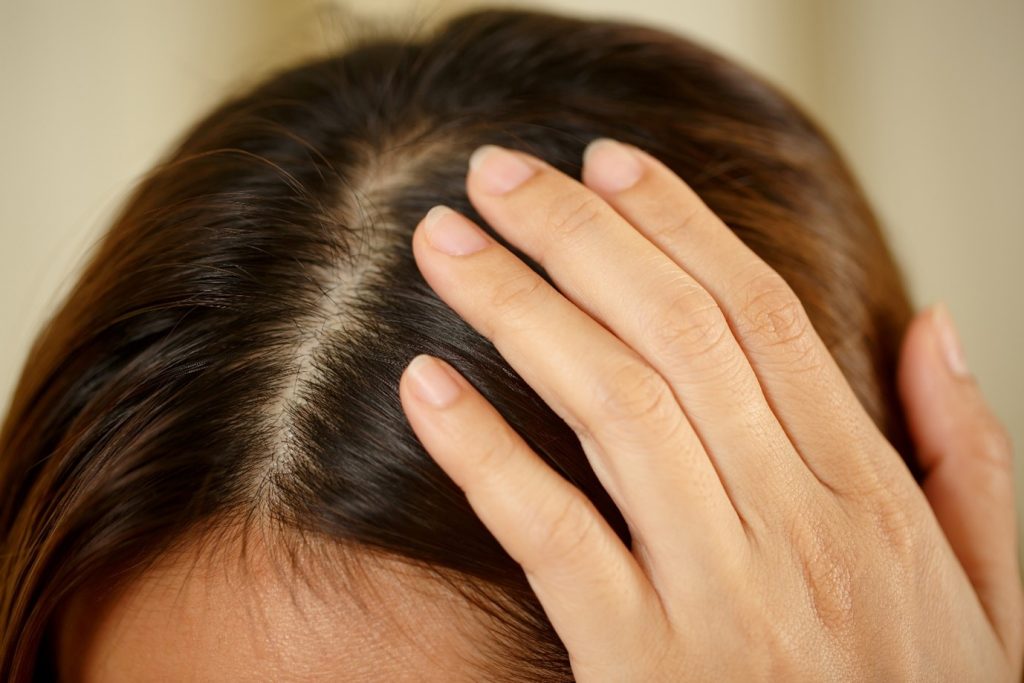Introduction
Millions of people around the world suffer from hair loss, which is a widespread issue. There are many different kinds of hair loss, and the treatments available depend on what’s causing the hair loss in the first place. Cutiskart is the one‑stop solution to all hair and scalp conditions with the best possible solutions and products.

Common issues related to hair and scalp (and their solutions)
Baldness: The most prevalent form of hair loss among men is male‑pattern baldness. It usually develops gradually over time and is brought on by hormone levels and genetics. Medication—specifically finasteride and minoxidil—are the most effective treatments. Finasteride blocks conversion of testosterone to DHT; minoxidil is applied topically to stimulate hair growth. In severe cases, hair‑transplant surgery may be recommended.
Alopecia areata: An autoimmune condition that causes patchy hair loss anywhere on the body, including the scalp. It can be treated with topical corticosteroids, topical immunotherapy or systemic immunosuppressive therapy.
Telogen effluvium: A form of hair shedding that occurs when more hairs than usual enter the resting (telogen) phase, leading to loss of > 100 hairs/day. Often temporary and triggered by stress, hormonal changes or illness. Treatment focuses on removing the trigger (e.g., stress reduction, medication change) and using appropriate hair‑loss products.
Scalp psoriasis (psoriatic scaly skin): Causes red, scaly patches with itch or soreness. Managed with topical or oral drugs (corticosteroids, retinoids) and light therapy plus suitable hair‑care products.
Seborrheic dermatitis: Produces scaling and irritation on the scalp; may lead to hair loss. Typically treated with medicated shampoos and topical corticosteroid or antifungal preparations.
Tips for healthy hair growth and preventing further loss
- Healthy diet: Ensure adequate vitamins/minerals (biotin, zinc, iron).
- Keep hair loose: Avoid tight ponytails/braids that stress follicles.
- Gentle hair‑care products: Choose sulfate‑free shampoos/styling products.
- Manage stress: Practices such as yoga or meditation help curb stress‑induced loss.
- Prevent heat damage: Limit flat‑iron/blow‑dryer heat; use heat‑protectant sprays.
- Avoid harsh chemicals: Minimise frequent coloring, perms or similar treatments.
Despite the distressing nature of hair loss, many approaches can help—depending on the cause. If you’re experiencing loss, consult a doctor for diagnosis. Cutis offers effective solutions for hair and scalp concerns—contact them for details.
FAQs
- What are some common causes of hair loss, and how prevalent is this issue globally?
Hair loss may stem from genetics, hormonal changes, autoimmune diseases or skin disorders; it affects millions worldwide. - What is male‑pattern baldness, and what are the most effective treatments?
A genetic/hormonal form of hair loss in men; finasteride, minoxidil and (in severe cases) transplant surgery are used to combat it. - What general strategies can aid in promoting healthy hair growth and preventing further hair loss?
Good nutrition, loose hairstyles, gentle products, stress management, minimal heat damage and fewer harsh chemicals. - How important is medical advice, and how can Cutis help?
Seeing a doctor pinpoints the underlying cause and best treatment. Cutis provides tailored medical and product solutions. - Can lifestyle changes positively impact hair health and prevent hair loss?
Yes—balanced diet, stress reduction and proper hair‑care habits significantly improve hair health and lower loss risk.
People Also Ask
1. What are the best treatments for androgenetic alopecia?
Minoxidil, finasteride and hair‑transplant surgery (e.g., Rogaine Foam, Propecia).
2. Can hair loss from dandruff be treated effectively?
Yes—anti‑dandruff shampoos with zinc pyrithione, ketoconazole or salicylic acid (e.g., Nizoral, Head & Shoulders Clinical).
3. What are the best natural treatments for hair loss?
Essential oils such as rosemary, peppermint or castor oil; scalp massage (e.g., PURA D’OR Castor Oil, Majestic Pure Rosemary).
4. How does PRP therapy help with hair loss?
Concentrated platelets injected into the scalp stimulate follicles, improving thickness and regrowth.
5. Are there effective over‑the‑counter treatments for hair loss?
Yes—minoxidil foam or solution (e.g., Rogaine, Kirkland Signature) is widely used without prescription.
Leave a Reply